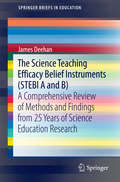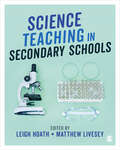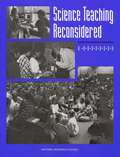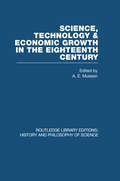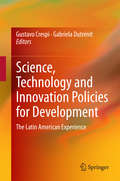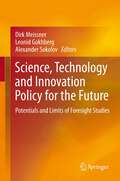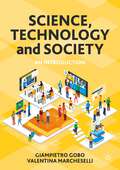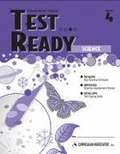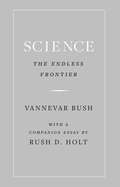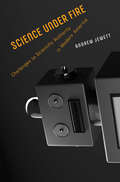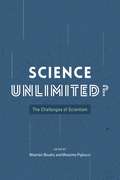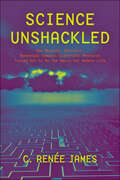- Table View
- List View
The Science Teaching Efficacy Belief Instruments (STEBI A and B)
by James DeehanThe purpose of this Springer Brief is to provide a comprehensive review of both the STEBI methods and findings through the use of a clearly defined analytic framework. A systematic review of literature yielded 107 STEBI-A research items and 140 STEBI-B research items. The STEBI instruments have been used in a wide range of qualitative, cross sectional, longitudinal and experimental designs. Analysis of the findings of the papers reveals that in-service and pre-service programs that use innovative practices such as cooperative learning, inquiry based investigation and nature of science instruction can produce positive growth in participants' science teaching efficacy beliefs. The personal science teaching efficacy beliefs of pre-service and in-service teachers showed greater mean scores and higher growth than their outcome expectancies. Implications are discussed.
Science Teaching in Secondary Schools
by Leigh Hoath Matthew LiveseyThis book is your essential guide to secondary science teacher training and the early career years giving smart, practical advice on developing your classroom skills and deepening your knowledge of science education. Covering all major aspects of science teaching, including: planning and assessment, the power of subject knowledge, teaching tricky topics and health and safety in class and lab work, it will encourage you to develop an informed approach to allow you to shine as an early career teacher of science. Key features: · Real life examples of how important teaching principles work in practice · What to look for when observing others teaching · Reflective questions challenging you to engage with key ideas · Chapters linked to the Core Content Framework and Early Career Framework Leigh Hoath is a Senior Professional Practice Fellow at Leeds Trinity University. Matthew Livesey is a teacher of biology at Bradford Grammar School.
Science Teaching in Secondary Schools
by Leigh Hoath Matthew LiveseyThis book is your essential guide to secondary science teacher training and the early career years giving smart, practical advice on developing your classroom skills and deepening your knowledge of science education. Covering all major aspects of science teaching, including: planning and assessment, the power of subject knowledge, teaching tricky topics and health and safety in class and lab work, it will encourage you to develop an informed approach to allow you to shine as an early career teacher of science. Key features: · Real life examples of how important teaching principles work in practice · What to look for when observing others teaching · Reflective questions challenging you to engage with key ideas · Chapters linked to the Core Content Framework and Early Career Framework Leigh Hoath is a Senior Professional Practice Fellow at Leeds Trinity University. Matthew Livesey is a teacher of biology at Bradford Grammar School.
Science Teaching Reconsidered: A Handbook
by Committee on Undergraduate Science EducationEffective science teaching requires creativity, imagination, and innovation. In light of concerns about American science literacy, scientists and educators have struggled to teach this discipline more effectively. Science Teaching Reconsidered provides undergraduate science educators with a path to understanding students, accommodating their individual differences, and helping them grasp the methods--and the wonder--of science.What impact does teaching style have? How do I plan a course curriculum? How do I make lectures, classes, and laboratories more effective? How can I tell what students are thinking? Why don't they understand? This handbook provides productive approaches to these and other questions.Written by scientists who are also educators, the handbook offers suggestions for having a greater impact in the classroom and provides resources for further research.
Science Techbook, Grade 3, Unit 1: Playground Forces
by Inc. Discovery EducationNIMAC-sourced textbook
Science Techbook, Grade 3, Unit 2: Life Cycles for Survival
by Inc. Discovery EducationNIMAC-sourced textbook
Science Techbook, Grade 3, Unit 3: Surviving in Changing Environments
by Inc. Discovery EducationNIMAC-sourced textbook
Science Techbook, Grade 3, Unit 4: Weather Impacts
by Inc. Discovery EducationNIMAC-sourced textbook
Science Techbook, Grade 4, Unit 3: Earth's Changing Surface
by Discovery EducationNIMAC-sourced textbook
Science Techbook, Grade 4, Unit 5: Senses and Survival
by Discovery EducationNIMAC-sourced textbook
Science, technology and economic growth in the eighteenth century
by A E MussonOriginally published in 1972.This book illustrates the growing awareness of the importance of science and technology in the Industrial Revolution. The contributors show that the growth in the teaching and literature of natural philosophy (mechanics, hydraulics etc), mathematics and chemistry, together with such new agencies as "philosophical societies", itinerant lecturers and libraries were significant factors in the development of the Industrial Revolution.
Science, Technology and Innovation Policies for Development
by Gustavo Crespi Gabriela DutrénitThis book examines the implementation of science, technology and innovation (STI) policy in eight Latin American countries and the different paths these policies have taken. It provides empirical evidence to examine the extent to which STI policies are contributing to the development of the region, as well as to the solution of market failures and the stimulus of the region's innovation systems. Since the pioneering work of Solow (1957), it has been recognized that innovation is critical for economic growth both in developed and in less-developed countries. Unfortunately Latin America lags behind world trends, and although over the last 20 years the region has established a more stable and certain macroeconomic regime, it is also clear that these changes have not been enough to trigger a process of innovation and productivity to catch-up. Against this rather grim scenario there is some optimism emerging throughout the region. After many years of inaction the region has begun to invest in science, technology and engineering once again. Furthermore, after many changes in innovation policy frameworks, there is now an emerging consensus on the need for a solution to coordination failures that hinder the interaction between supply and demand. Offering an informative and analytic insight into STI policymaking within Latin America, this book can be used by students, researchers and practitioners who are interested in the design and implementation of innovation policies. This book also intends to encourage discussion and collaboration amongst current policy makers within the region.
Science, Technology and Innovation Policy for the Future: Potentials and Limits of Foresight Studies
by Leonid Gokhberg Dirk Meissner Alexander SokolovThe book gives practical guidance for policy makers, analysts and researchers on how to make the most of the potential of Foresight studies. Based on the concept of evidence-based policy-making, Foresight studies are common practice in many countries and are commonly understood as a supportive tool in designing future-oriented strategies. The book outlines approaches and experiences of integrating such Foresight studies in the making and implementation of science, technology and innovation (STI) policies at different national levels. It delivers insights into practical approaches of developing STI policy measures oriented towards future societal and technological challenges based on evidence drawn from comparable policy measures worldwide. Authors from leading academic institutions, international organizations and national governments provide a sound theoretical foundation and framework as well as checklists and guidelines for leveraging the potential impact of STI policies.
Science, Technology and Society
by Martin Bridgstock David Burch John Forge John Laurent Ian LoweThis book provides a comprehensive introduction to the human, social and economic aspects of science and technology. It examines a broad range of issues from a variety of perspectives, using examples and experiences from around the world. The authors present complex issues, including the responsibilities of scientists, ethical dilemmas and controversies, the Industrial Revolution, economic issues, public policy, and science and technology in developing countries. The book ends with a thoughtful and provocative look toward the future. It features extensive guides to further reading, as well as a useful section on information searching skills. This book will provoke, engage, inform and stimulate thoughtful discussion about culture, society and science. Broad and interdisciplinary, it will be of considerable value to both students and teachers.
Science, Technology and Society: An Introduction
by Giampietro Gobo Valentina MarcheselliScience, Technology and Society: An Introduction provides students with an accessible overview of the interdisciplinary field of Science and Technology Studies (STS). The discipline breaks down traditional conceptions of knowledge as universal, neutral and ahistorical, and takes a more critical approach to science and technology as social embedded phenomena. This comprehensive textbook makes use of unique examples and case studies to illustrate theoretical debates and concepts. In addition, the reader acquires a unique vision of contemporary issues (such as the power of algorithms, the mystification of fake news, the role of experts within the decision-making process, for example). Each chapter incorporates pedagogically rich features, including interactive discussion points to be used individually or in class as prompts for debate.
Science Term-1 Volume-3 class 7 - Tamil Nadu Board
by Government Of Tamil NaduTextbook of Science for the students of standard 7 of Tamil Nadu Board.
Science Test Ready Book 4
by Curriculum Associates StaffTEST READY Science is a review program that provides practice in test-taking skills. The program can be completed in twenty-two days or fewer. Your teacher will provide you with directions about how to do the lessons and how to record the answers. Your teacher will also tell you when to begin work on each lesson part and when to stop.
Science, the Endless Frontier: A Report To The President (Three Centuries Of Science In America Ser.)
by Vannevar BushThe classic case for why government must support science—with a new essay by physicist and former congressman Rush Holt on what democracy needs from science todayScience, the Endless Frontier is recognized as the landmark argument for the essential role of science in society and government’s responsibility to support scientific endeavors. First issued when Vannevar Bush was the director of the US Office of Scientific Research and Development during the Second World War, this classic remains vital in making the case that scientific progress is necessary to a nation’s health, security, and prosperity. Bush’s vision set the course for US science policy for more than half a century, building the world’s most productive scientific enterprise. Today, amid a changing funding landscape and challenges to science’s very credibility, Science, the Endless Frontier resonates as a powerful reminder that scientific progress and public well-being alike depend on the successful symbiosis between science and government.This timely new edition presents this iconic text alongside a new companion essay from scientist and former congressman Rush Holt, who offers a brief introduction and consideration of what society needs most from science now. Reflecting on the report’s legacy and relevance along with its limitations, Holt contends that the public’s ability to cope with today’s issues—such as public health, the changing climate and environment, and challenging technologies in modern society—requires a more capacious understanding of what science can contribute. Holt considers how scientists should think of their obligation to society and what the public should demand from science, and he calls for a renewed understanding of science’s value for democracy and society at large.A touchstone for concerned citizens, scientists, and policymakers, Science, the Endless Frontier endures as a passionate articulation of the power and potential of science.
Science under Fire: Challenges to Scientific Authority in Modern America
by Andrew JewettAmericans have long been suspicious of experts and elites. This new history explains why so many have believed that science has the power to corrupt American culture. Americans today are often skeptical of scientific authority. Many conservatives dismiss climate change and Darwinism as liberal fictions, arguing that “tenured radicals” have coopted the sciences and other disciplines. Some progressives, especially in the universities, worry that science’s celebration of objectivity and neutrality masks its attachment to Eurocentric and patriarchal values. As we grapple with the implications of climate change and revolutions in fields from biotechnology to robotics to computing, it is crucial to understand how scientific authority functions—and where it has run up against political and cultural barriers. Science under Fire reconstructs a century of battles over the cultural implications of science in the United States. Andrew Jewett reveals a persistent current of criticism which maintains that scientists have injected faulty social philosophies into the nation’s bloodstream under the cover of neutrality. This charge of corruption has taken many forms and appeared among critics with a wide range of social, political, and theological views, but common to all is the argument that an ideologically compromised science has produced an array of social ills. Jewett shows that this suspicion of science has been a major force in American politics and culture by tracking its development, varied expressions, and potent consequences since the 1920s. Looking at today’s battles over science, Jewett argues that citizens and leaders must steer a course between, on the one hand, the naïve image of science as a pristine, value-neutral form of knowledge, and, on the other, the assumption that scientists’ claims are merely ideologies masquerading as truths.
Science Unlimited?: The Challenges of Scientism
by Maarten Boudry Massimo PigliucciAll too often in contemporary discourse, we hear about science overstepping its proper limits—about its brazenness, arrogance, and intellectual imperialism. The problem, critics say, is scientism: the privileging of science over all other ways of knowing. Science, they warn, cannot do or explain everything, no matter what some enthusiasts believe. In Science Unlimited?, noted philosophers of science Maarten Boudry and Massimo Pigliucci gather a diverse group of scientists, science communicators, and philosophers of science to explore the limits of science and this alleged threat of scientism. In this wide-ranging collection, contributors ask whether the term scientism in fact (or in belief) captures an interesting and important intellectual stance, and whether it is something that should alarm us. Is scientism a well-developed position about the superiority of science over all other modes of human inquiry? Or is it more a form of excessive confidence, an uncritical attitude of glowing admiration? What, if any, are its dangers? Are fears that science will marginalize the humanities and eradicate the human subject—that it will explain away emotion, free will, consciousness, and the mystery of existence—justified? Does science need to be reined in before it drives out all other disciplines and ways of knowing? Both rigorous and balanced, Science Unlimited? interrogates our use of a term that is now all but ubiquitous in a wide variety of contexts and debates. Bringing together scientists and philosophers, both friends and foes of scientism, it is a conversation long overdue.
Science Unshackled: How Obscure, Abstract, Seemingly Useless Scientific Research Turned Out to Be the Basis for Modern Life
by C. Rene JamesAn “entertaining, informative, and thought-provoking” look at the world of pure science and how obscure research leads to major changes in our world (John M. Henshaw, University of Tulsa, author of A Tour of the Senses).With a novelistic style, C. Renée James reveals how obscure studies of natural phenomena—including curved space-time, poisonous cone snails, exploding black holes, and the precise chemical makeup of the sun—led unexpectedly to WiFi, GPS, genetic sequencing, pain medications, and cancer treatments. Science Unshackled brings both science and scientists to life and shows how simple curiosity can result in life-changing breakthroughs.Scientists engaged in what is known as basic research never know when exploring small questions will have big impacts. But, by following the scientific method, disciplined inquiry can lead to wondrous and practical discoveries that benefit all of us in the end. The next time someone asks you why “the government” wastes its money on weird research, recall the intriguing stories James has told and tell them the answer.
Science Unshackled: How Obscure, Abstract, Seemingly Useless Scientific Research Turned Out to Be the Basis for Modern Life
by C. Renée JamesFascinating stories that describe the unlikely path from quirky idea to useful and essential knowledge.Why in the world are we paying for all this "basic" research? The answer to this question becomes clear in this romp through the "seemingly useless" world of pure science, where one thing leads to another in ways that result in major scientific advancements. With a novelistic style, C. Renée James reveals how obscure studies of natural phenomena—including curved space-time, poisonous cone snails, exploding black holes, and the precise chemical makeup of the sun—led unexpectedly to WiFi, GPS, genetic sequencing, pain medications, and cancer treatments. Science Unshackled brings both science and scientists to life and shows how simple curiosity can result in life-changing breakthroughs.Scientists engaged in basic research, funded in large part by governments around the globe and throughout the centuries, never know when exploring small questions will have big impacts. But, by following the scientific method, disciplined inquiry can lead to wondrous and practical discoveries that benefit all of us in the end. The next time someone asks you why "the government" wastes its money on weird research, recall the intriguing stories James has told and tell them the answer.
